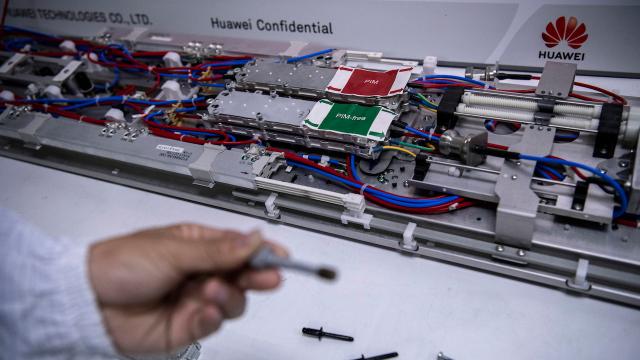The Chinese government is showing signs that it’s ready to use rare earth metals as a bargaining chip in the trade war between the U.S. and China that’s escalated over recent weeks. China supplies roughly 80 per cent of all rare earth metals used by the U.S. in everything from smartphones to X-ray machines, which means that this could be a potentially expensive problem for America.
The U.S.-China trade war is being waged on multiple fronts, from agriculture to mining. But the tech sector is also getting a lot of notice, as the U.S. has struck hard against Huawei over the tech giant’s ties to the Chinese government and supposed national security concerns for the U.S. This just happens to be a case where tech and mining collide.
Contrary to their name, the 17 rare earth chemical elements are actually quite common. The “rare” part refers to the fact that they’re very difficult to extract before they can be used in electronics, despite being common in the earth’s crust. And Chinese media are sending strong signals that things are about to get even more heated.
“Undoubtedly, the U.S. side wants to use the products made by China’s exported rare earths to counter and suppress China’s development. The Chinese people will never accept this!” China’s state-run People’s Daily newspaper said in an editorial published Wednesday, according to a translation by Reuters.
The People’s Daily went on to say, “We advise the U.S. side not to underestimate the Chinese side’s ability to safeguard its development rights and interests. Don’t say we didn’t warn you!”
And while the phrase “don’t say we didn’t warn you” may seem fairly innocuous when compared with the heated rhetoric employed in the age of Donald Trump, it’s actually historically significant. As both Bloomberg News and Reuters point out, that phrase has only been used by Chinese state-run media in the lead up to significant confrontations, including the 2017 border stand-off with India and the 1979 invasion of Vietnam.
If China cuts off America’s access to rare earth metals, the U.S. would likely accelerate processing in California and look to other sources from allies like Australia. Rare earth company Lynas Corp has been investing heavily in new facilities in Western Australia that would allow it to ramp up production significantly. Lynas’s stock rose 14 per cent today on the Australian stock market.
Almost every media commentary about the trade war that’s coming out of China right now mentions Huawei, and rightly so. The U.S. Department of Justice charged Huawei in January with fraud, obstruction of justice, and the theft of trade secrets.
President Trump repeatedly invokes U.S. national security when discussing Huawei, but he also hints that he would make exemptions for Huawei in exchange for trade concessions by China. Sometimes, it’s not just a hint but an explicit message of tit-for-tat.
“Huawei is something that’s very dangerous,” Trump said last week, before making it clear that he’s not actually concerned very much about security.
“It’s possible that Huawei even would be included in some kind of trade deal,” Trump continued. “If we made a deal, I can imagine Huawei being included in some form of… some part of a trade deal.”
Huawei, which has an American headquarters in Plano, Texas, filed a motion last night in an effort to declare the U.S. ban on Huawei unconstitutional. But that action seems like a longshot in the U.S. courts after the 2019 National Defence Authorization Act (NDAA), signed by Congress, made it much easier to ban Huawei on national security grounds, real or imagined.
Huawei’s chief legal officer, Song Liuping, made a statement from China this morning that said the U.S. government just wants to put Huawei out of business, calling it “not normal” and “almost never seen in history.”
“The fact is the U.S. government has provided no evidence to show that Huawei is a security threat,” Song said. “There is no gun, no smoke. Only speculation.”
Huawei has tried a number of different messaging tactics, sometimes talking about America’s Founding Fathers, while other times saying that if you’re worried about Chinese spying, you should be worried about American spying too. They’ve even tried flattery, with the head of Huawei once praising President Trump as a “great president.”
But today Huawei seemed to be trying a new line, invoking affordability and what will serve America’s rural areas the best, as Huawei is a leading manufacturer of 5G infrastructure technology, which could eventually be used to bring high-speed mobile internet to less populated areas.
“Let me be clear,” Song continued. “This lawsuit is about what’s right. The NDAA is bad for Huawei. But it also takes away freedom of choice for American operators and consumers. In the United States, many people in rural areas have been forgotten. They still don’t have access to affordable broadband networks.”
The Dow fell 238 points after opening on Wednesday, largely believed to be a reaction to the trade war news—a consequence that is itself become less and less rare.
